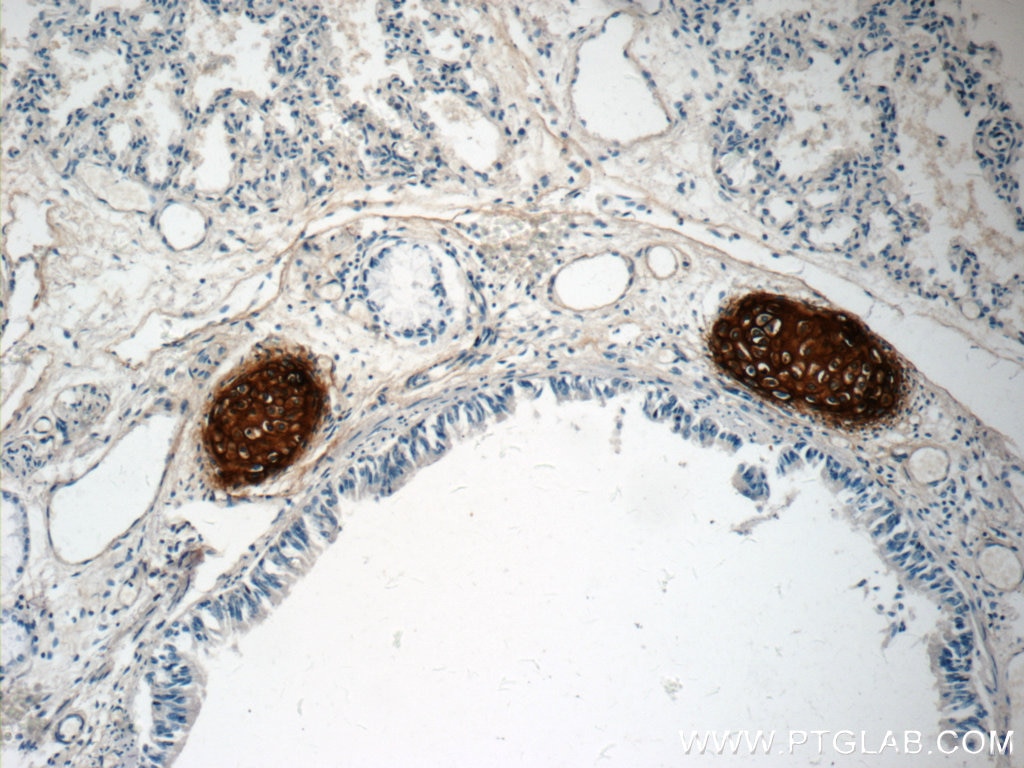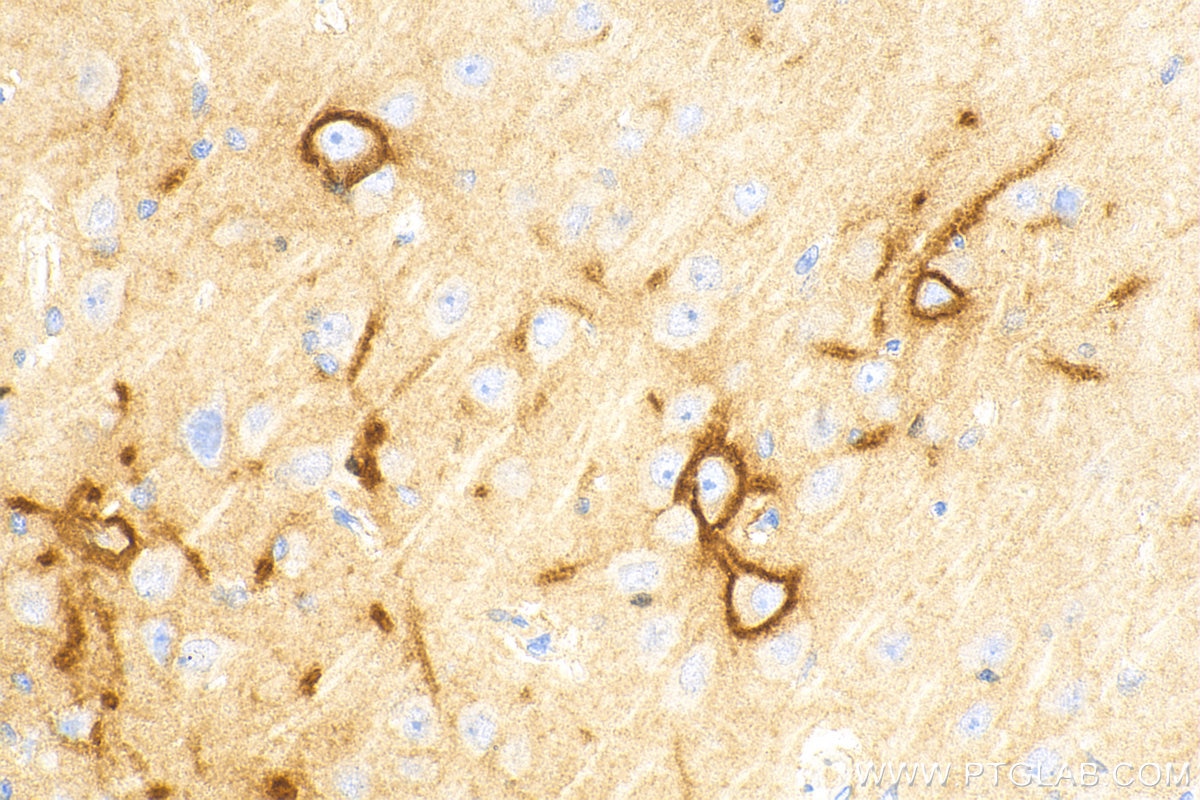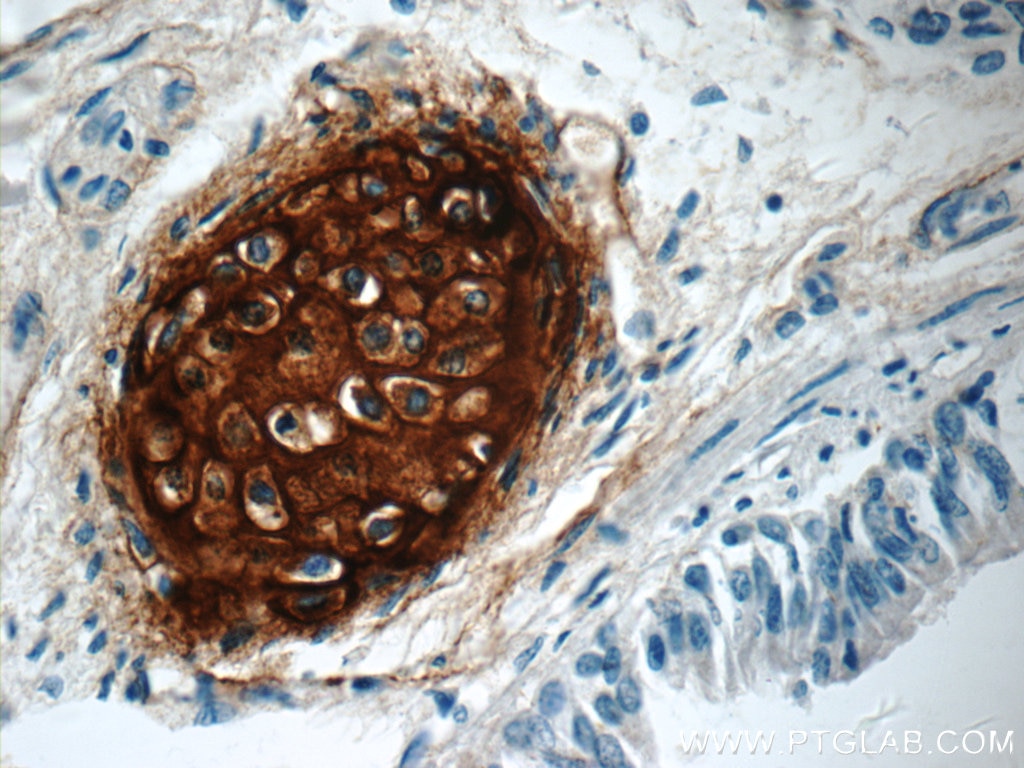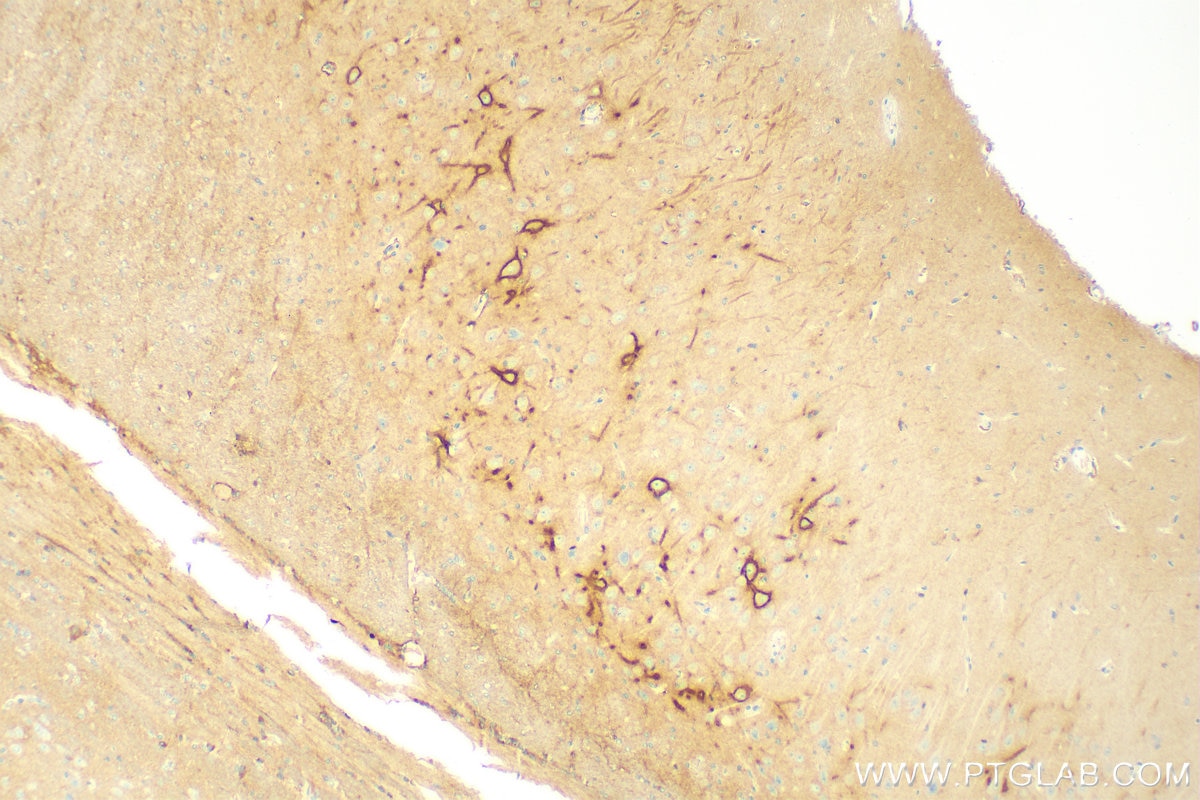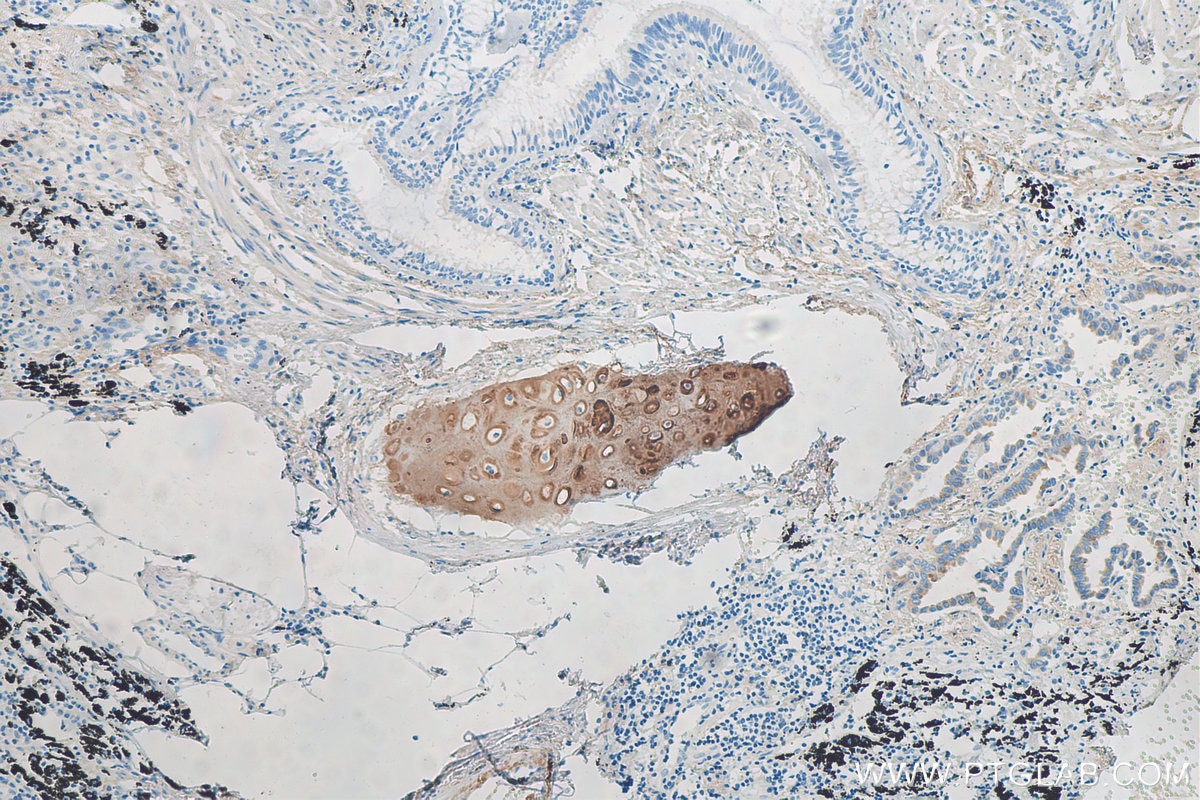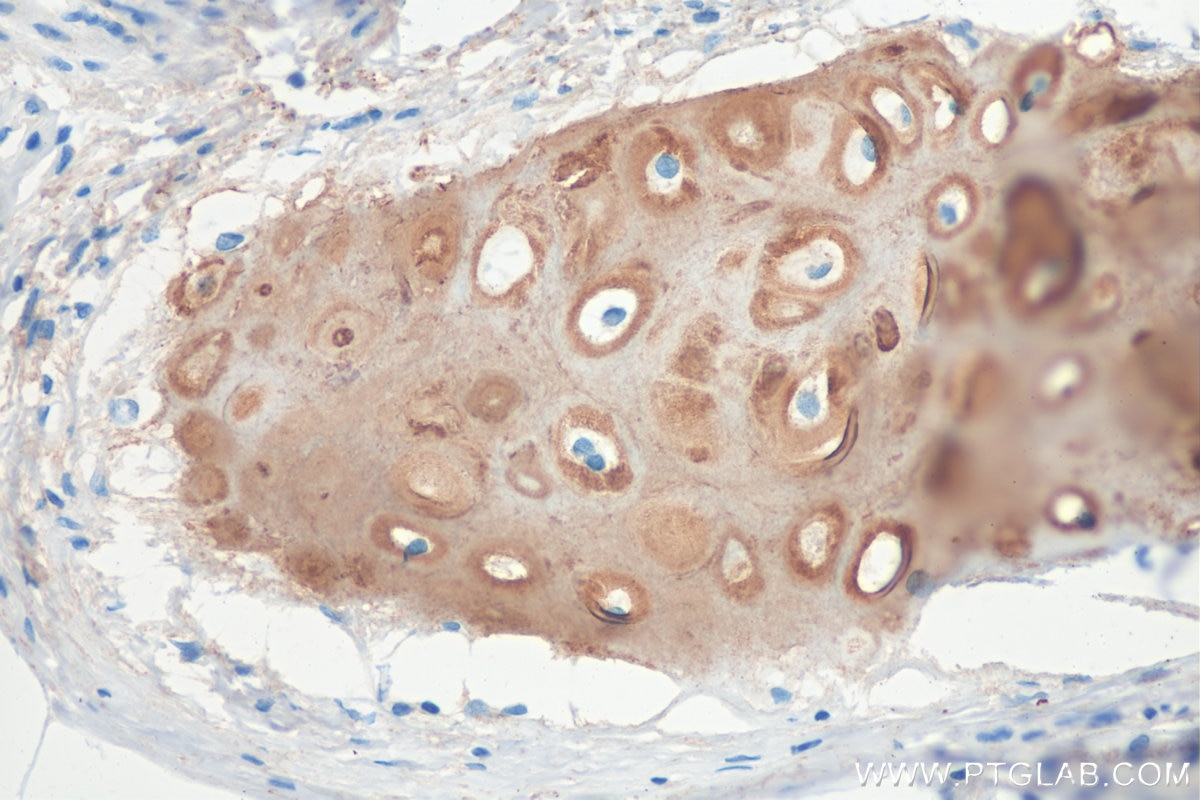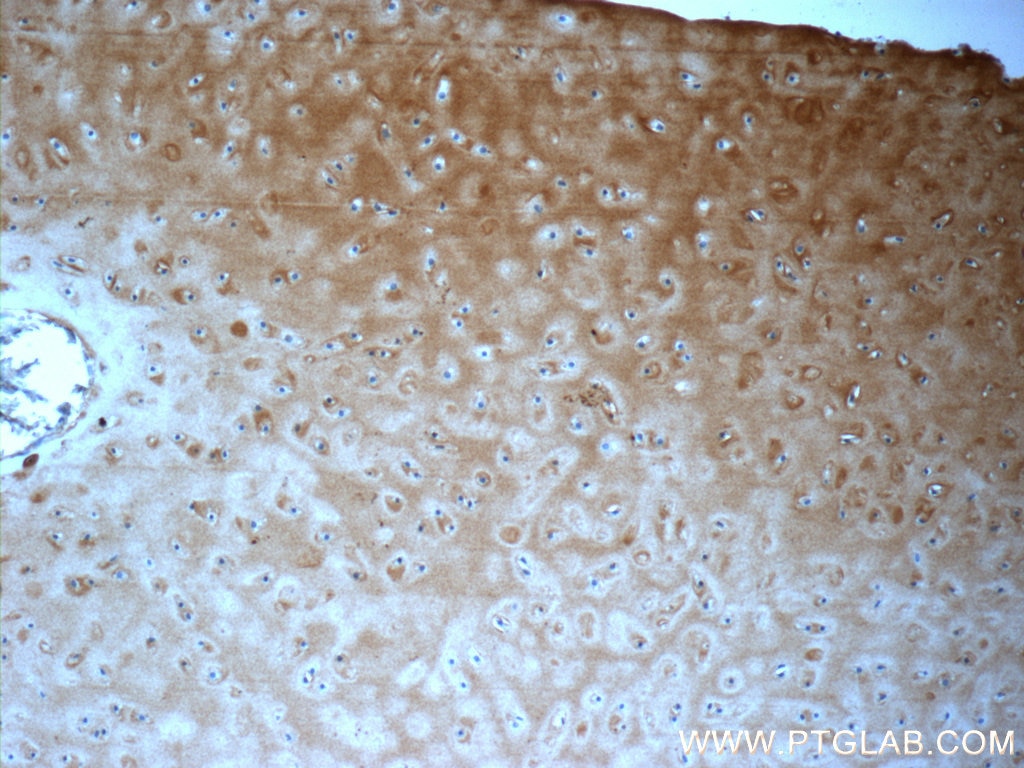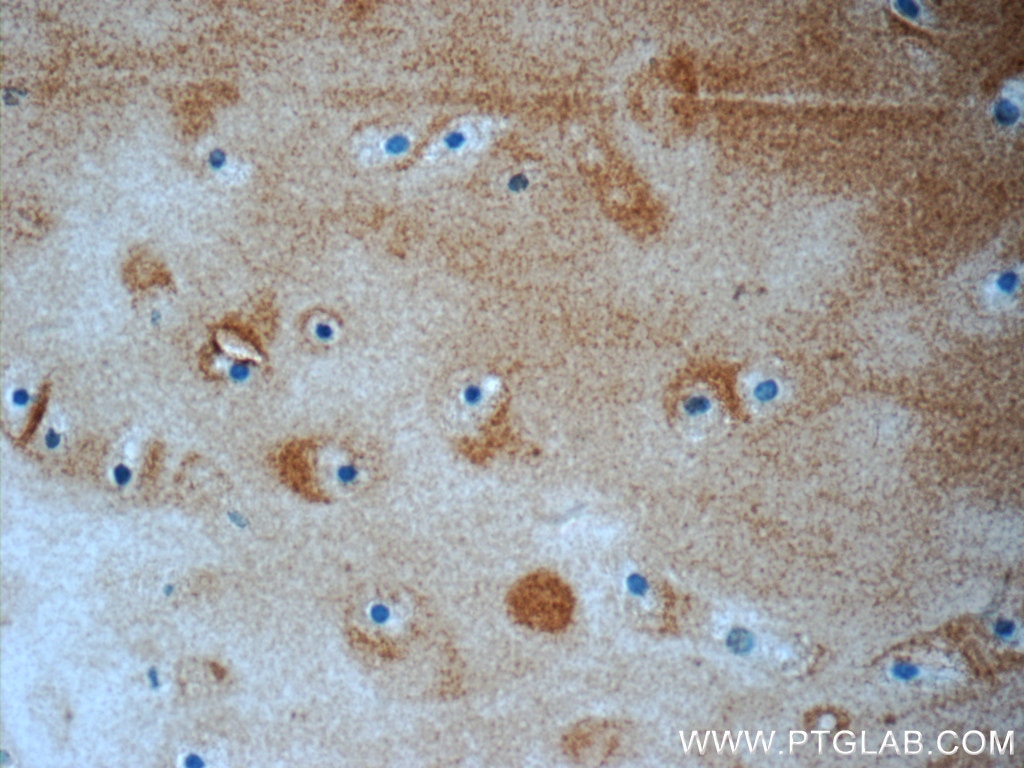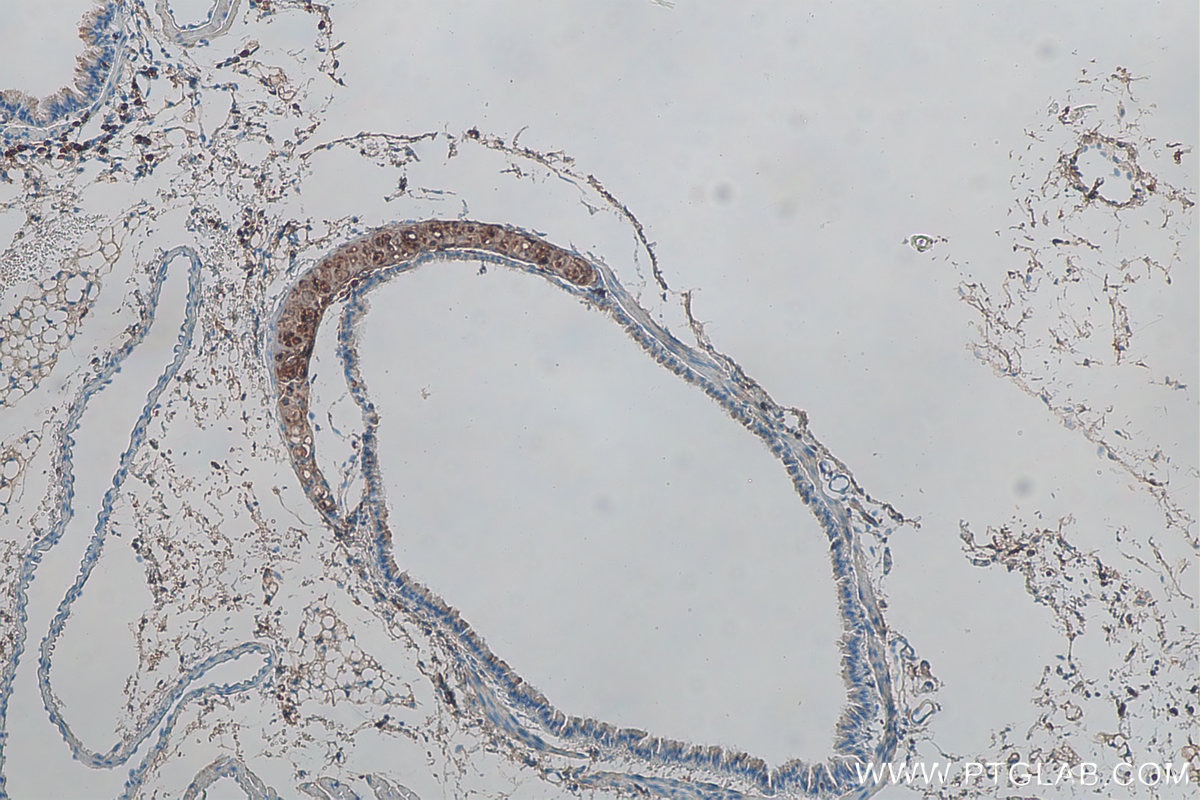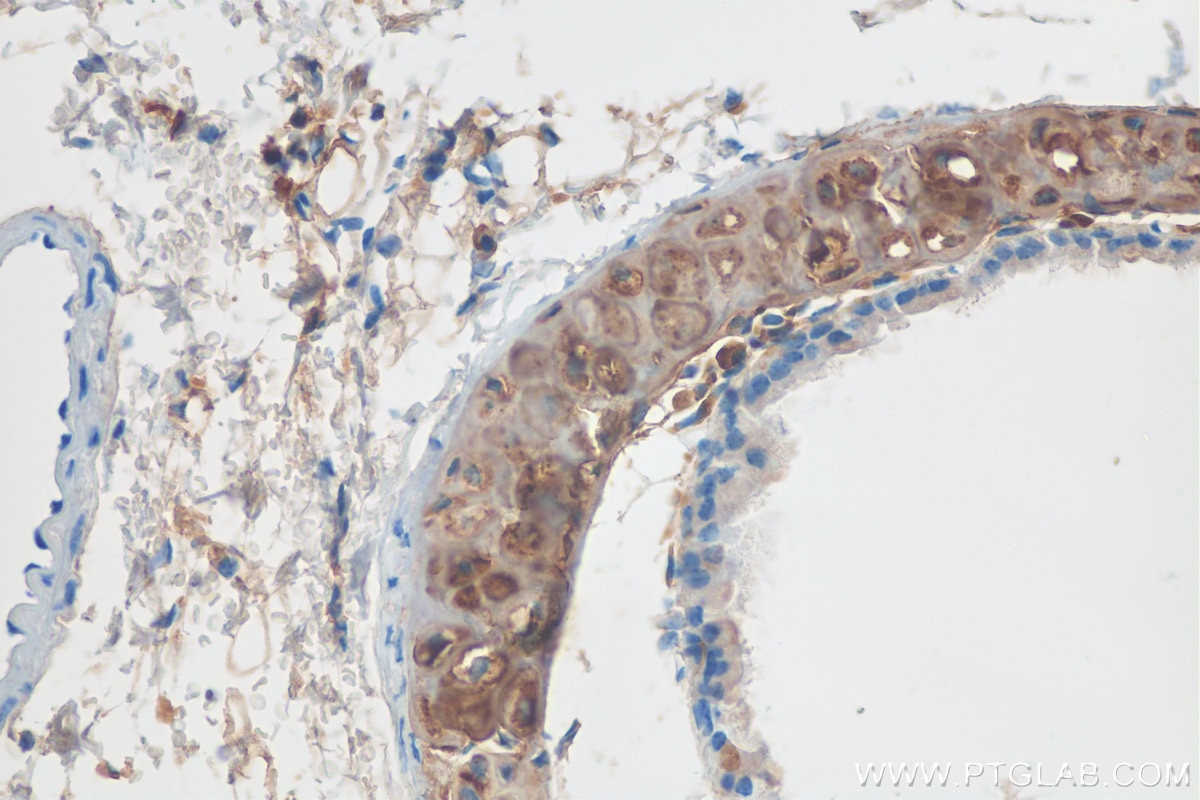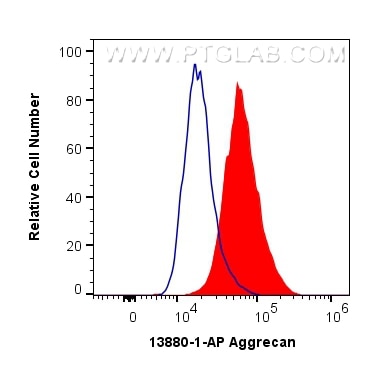Anticorps Polyclonal de lapin anti-Aggrecan
Aggrecan Polyclonal Antibody for IHC, FC (Intra), ELISA
Hôte / Isotype
Lapin / IgG
Réactivité testée
Humain, rat, souris et plus (4)
Applications
IHC, IF, FC (Intra), ELISA
Conjugaison
Non conjugué
N° de cat : 13880-1-AP
Synonymes
Galerie de données de validation
Applications testées
| Résultats positifs en IHC | tissu pulmonaire humain, tissu cartilagineux humain, tissu cérébral de rat, tissu de cancer du poumon humain, tissu pulmonaire de souris il est suggéré de démasquer l'antigène avec un tampon de TE buffer pH 9.0; (*) À défaut, 'le démasquage de l'antigène peut être 'effectué avec un tampon citrate pH 6,0. |
| Résultats positifs en FC (Intra) | cellules ATDC-5, |
Dilution recommandée
| Application | Dilution |
|---|---|
| Immunohistochimie (IHC) | IHC : 1:200-1:800 |
| Flow Cytometry (FC) (INTRA) | FC (INTRA) : 0.80 ug per 10^6 cells in a 100 µl suspension |
| It is recommended that this reagent should be titrated in each testing system to obtain optimal results. | |
| Sample-dependent, check data in validation data gallery | |
Applications publiées
| IHC | See 110 publications below |
| IF | See 109 publications below |
Informations sur le produit
13880-1-AP cible Aggrecan dans les applications de IHC, IF, FC (Intra), ELISA et montre une réactivité avec des échantillons Humain, rat, souris
| Réactivité | Humain, rat, souris |
| Réactivité citée | rat, canin, Humain, Lapin, poisson-zèbre, porc, souris |
| Hôte / Isotype | Lapin / IgG |
| Clonalité | Polyclonal |
| Type | Anticorps |
| Immunogène | Aggrecan Protéine recombinante Ag4985 |
| Nom complet | aggrecan |
| Masse moléculaire calculée | 250 kDa |
| Numéro d’acquisition GenBank | BC036445 |
| Symbole du gène | ACAN |
| Identification du gène (NCBI) | 176 |
| Conjugaison | Non conjugué |
| Forme | Liquide |
| Méthode de purification | Purification par affinité contre l'antigène |
| Tampon de stockage | PBS with 0.02% sodium azide and 50% glycerol |
| Conditions de stockage | Stocker à -20°C. Stable pendant un an après l'expédition. L'aliquotage n'est pas nécessaire pour le stockage à -20oC Les 20ul contiennent 0,1% de BSA. |
Informations générales
Aggrecan (ACAN), also named as CSPCP, AGC1 and MSK16, belongs to the aggrecan/versican proteoglycan family (also including versican, brevican and neurocan). It is a major component of extracellular matrix of cartilaginous tissues. A major function of aggrecan is to resist compression in cartilage. It binds avidly to hyaluronic acid via an N-terminal globular region.
Protocole
| Product Specific Protocols | |
|---|---|
| IHC protocol for Aggrecan antibody 13880-1-AP | Download protocol |
| FC protocol for Aggrecan antibody 13880-1-AP | Download protocol |
| Standard Protocols | |
|---|---|
| Click here to view our Standard Protocols |
Publications
| Species | Application | Title |
|---|---|---|
Cell Stem Cell A human organoid drug screen identifies α2-adrenergic receptor signaling as a therapeutic target for cartilage regeneration | ||
Sci Transl Med Single-cell atlas of human infrapatellar fat pad and synovium implicates APOE signaling in osteoarthritis pathology | ||
Nat Commun Injectable ECM-mimetic dynamic hydrogels abolish ferroptosis-induced post-discectomy herniation through delivering nucleus pulposus progenitor cell-derived exosomes | ||
J Extracell Vesicles miR-23a-3p-abundant small extracellular vesicles released from Gelma/nanoclay hydrogel for cartilage regeneration. | ||
Adv Sci (Weinh) Inhibition of Heat Shock Protein 90β by Catalpol: A Potential Therapeutic Approach for Alleviating Inflammation-Induced Cartilage Injuries in Osteoarthritis |
